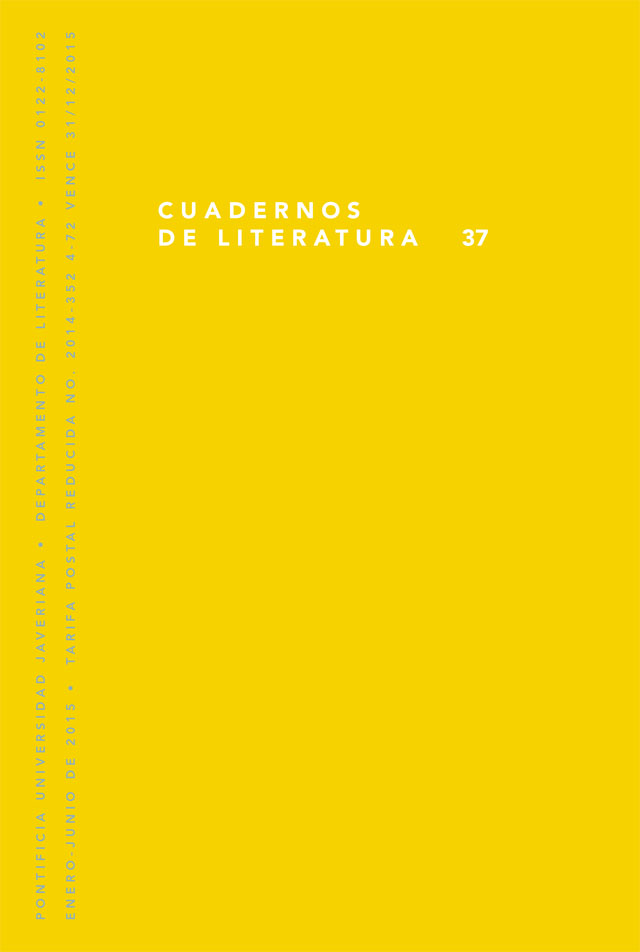Abstract
A partir de las renombradas “Palabras a los intelectuales” (1961), pronunciadas por Fidel Castro en la Biblioteca Nacional José Martí y la creación de una red de Bibliotecas estatales, la biblioteca en Cuba se transformó en una esfera cultural saturada de ambigüedad ideológica. En este contexto, la representación de la biblioteca en la literatura y el cine de la época pos-soviética re-escenifica inconclusos debates entre la libertad de expresión y el contrato social. Este análisis demuestra que la reciente producción cultural cubana revigoriza la biblioteca como espacio de negociación ideológica en una época de expectativas precarias y reactiva conversaciones culturales sobre la clase social y la democratización, la propiedad cultural individual o colectiva, y el ideal revolucionario de la inmersión ciudadana en la vida cultural.
Cuadernos de Literatura is registered under a Creative Commons Attribution 4.0 International Public License. Thus, this work may be reproduced, distributed, and publicly shared in digital format, as long as the names of the authors and Pontificia Universidad Javeriana are acknowledged. Others are allowed to quote, adapt, transform, auto-archive, republish, and create based on this material, for any purpose (even commercial ones), provided the authorship is duly acknowledged, a link to the original work is provided, and it is specified if changes have been made. Pontificia Universidad Javeriana does not hold the rights of published works and the authors are solely responsible for the contents of their works; they keep the moral, intellectual, privacy, and publicity rights.
Approving the intervention of the work (review, copy-editing, translation, layout) and the following outreach, are granted through an use license and not through an assignment of rights. This means the journal and Pontificia Universidad Javeriana cannot be held responsible for any ethical malpractice by the authors. As a consequence of the protection granted by the use license, the journal is not required to publish recantations or modify information already published, unless the errata stems from the editorial management process. Publishing contents in this journal does not generate royalties for contributors.


